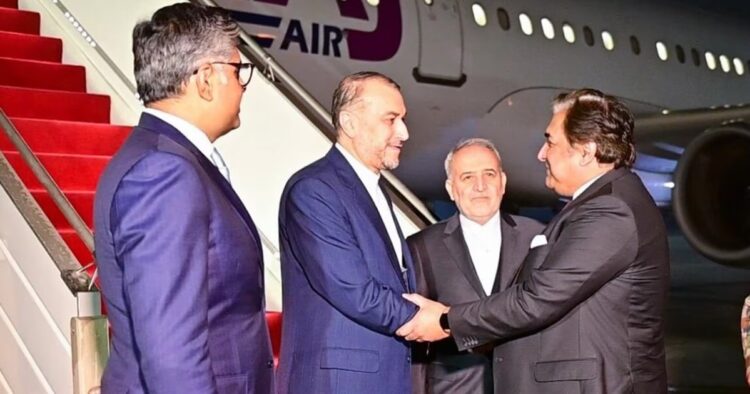Iranian Foreign Minister, Hossein Amir-Abdollahian, arrived in Islamabad on Monday at the invitation of his Pakistani counterpart, Jalil Abbas Jilani. This visit follows recent tit-for-tat strikes between the two countries. The Iranian Foreign Minister was warmly received by Pakistan’s Additional Foreign Secretary for Afghanistan and West Asia, Rahim Hayat Qureshi, upon his arrival at Nur Khan airbase.
During his stay, Amir-Abdollahian is scheduled to hold extensive talks with Foreign Minister Jilani and Pakistan’s caretaker Prime Minister Anwaar ul Haq Kakar. The aim is to address the current strains in bilateral relations and explore avenues to put them back on a positive trajectory.
According to Pakistan Foreign Ministry spokesperson Mumtaz Zahra Baloch, the Iranian Foreign Minister’s visit is a significant diplomatic move. She stated that “Foreign Minister Abdollahian will hold in-depth talks with Foreign Minister Jilani and call on Prime Minister @anwaar_kakar.”
The recent tension escalated on January 16 when Tehran launched missile attacks on militant bases in southwestern Pakistan. In a retaliatory move on January 18, Pakistan conducted strikes inside Iran, targeting terrorist organizations such as the Balochistan Liberation Army (BLA) and Balochistan Liberation Front (BLF).
The tit-for-tat strikes have raised concerns about regional instability, especially in the wake of the ongoing conflict between Israel and Hamas since October 7. However, both Pakistan and Iran have recently agreed to de-escalate the situation and collaborate closely on counter-terrorism efforts, as announced by the Pakistan Ministry of Foreign Affairs in an official press release.
A telephonic conversation between Foreign Minister Jilani and his Iranian counterpart Amir-Abdollahian took place, emphasizing the close and brotherly relations between the two nations. The Pakistani minister expressed Pakistan’s desire to work with Iran based on mutual trust and cooperation. Stressing the importance of respecting territorial integrity and sovereignty, the Foreign Minister highlighted these principles as the foundation for their collaborative efforts.
The visit is seen as a diplomatic initiative to ease tensions and promote understanding between the neighboring nations, fostering cooperation in the face of shared challenges.

















Comments